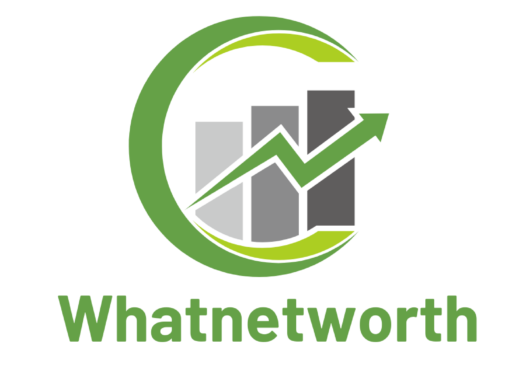Debt can quickly become overwhelming when you’re managing multiple loans, high-interest credit cards, and monthly bills. A debt consolidation loan can simplify your finances by combining multiple debts into a single payment with a lower interest rate. This not only reduces your monthly payments but also helps improve your credit score over time.
In this guide, we will discuss the best debt consolidation loans available, their benefits, eligibility criteria, and how to choose the right loan for your financial needs.
What is a Debt Consolidation Loan?
A debt consolidation loan is a type of personal loan used to pay off multiple debts. Instead of juggling different interest rates and due dates, you make one fixed monthly payment to a single lender. This helps reduce financial stress, saves money on interest, and makes repayment more manageable.
Benefits of Debt Consolidation Loans
- Lower Monthly Payments: By consolidating multiple debts, you may qualify for a lower interest rate, which reduces your overall monthly payments.
- Simplified Payments: Managing one loan instead of multiple debts makes budgeting easier.
- Fixed Interest Rate: Unlike credit cards with variable interest rates, a debt consolidation loan usually has a fixed rate, providing stability in your payments.
- Potential Credit Score Boost: Paying off multiple debts and reducing credit utilization can positively impact your credit score.
- Faster Debt Repayment: With a structured repayment plan, you can pay off your debt faster compared to making minimum payments on credit cards.
Best Debt Consolidation Loans for 2025
1. SoFi Personal Loans
- APR: 8.99% – 25.81%
- Loan Amount: $5,000 – $100,000
- Credit Score Requirement: 680+
- Pros:
- No fees (origination, prepayment, or late fees)
- Unemployment protection
- Competitive interest rates
- Cons:
- Requires a good credit score
- Not ideal for small loan amounts
2. Marcus by Goldman Sachs
- APR: 6.99% – 24.99%
- Loan Amount: $3,500 – $40,000
- Credit Score Requirement: 660+
- Pros:
- No fees (origination, prepayment, or late fees)
- Fixed interest rates
- Autopay discount available
- Cons:
- No co-signer option
- Limited loan amount range
3. LightStream
- APR: 7.99% – 25.99%
- Loan Amount: $5,000 – $100,000
- Credit Score Requirement: 660+
- Pros:
- No fees
- Fast funding (same-day possible)
- Low rates for strong credit borrowers
- Cons:
- Not available for borrowers with poor credit
- No pre-qualification option
4. Discover Personal Loans
- APR: 7.99% – 24.99%
- Loan Amount: $2,500 – $40,000
- Credit Score Requirement: 660+
- Pros:
- No origination fees
- Flexible repayment terms
- U.S.-based customer service
- Cons:
- Requires good credit
- No co-signer option
5. Upgrade Personal Loans
- APR: 8.49% – 35.99%
- Loan Amount: $1,000 – $50,000
- Credit Score Requirement: 560+
- Pros:
- Accepts lower credit scores
- Fixed interest rates
- Fast approval process
- Cons:
- High maximum interest rates
- Origination fees apply
How to Qualify for a Debt Consolidation Loan
Lenders have different eligibility requirements, but here are some key factors that determine your approval:
- Credit Score: A higher credit score (typically 660+) increases your chances of getting approved with a low interest rate.
- Debt-to-Income Ratio (DTI): Lenders prefer borrowers with a DTI below 40%.
- Stable Income: A steady source of income proves you can repay the loan.
- Loan Amount and Purpose: The loan amount requested should match your debt consolidation needs.
How to Choose the Right Debt Consolidation Loan
- Compare Interest Rates: Lower interest rates save you money over time.
- Check Fees: Avoid loans with high origination, prepayment, or hidden fees.
- Loan Terms: Choose a repayment term that fits your budget.
- Customer Reviews: Read reviews to ensure you select a reputable lender.
- Prequalification Options: Check if the lender offers prequalification without affecting your credit score.
Steps to Apply for a Debt Consolidation Loan
- Check Your Credit Score: Review your credit report and improve your score if needed.
- Determine Your Loan Amount: Calculate the total debt you need to consolidate.
- Compare Lenders: Research interest rates, fees, and repayment terms.
- Prequalify: Some lenders allow you to check your rate without a hard credit check.
- Submit an Application: Provide income details, debt information, and identification.
- Receive Funds & Pay Off Debt: Once approved, use the loan amount to pay off existing debts.
- Make Timely Payments: Stay consistent with your payments to avoid further debt issues.
Alternatives to Debt Consolidation Loans
If you don’t qualify for a debt consolidation loan, consider these alternatives:
- Balance Transfer Credit Card: Transfer high-interest debt to a 0% APR card.
- Home Equity Loan: Use home equity as collateral for a lower interest rate.
- Debt Management Plan: Work with a nonprofit credit counseling agency.
- Personal Savings: If possible, use savings to pay off high-interest debt.
Final Thoughts
Debt consolidation loans are a smart option if you’re struggling with multiple high-interest debts. They simplify payments, lower interest rates, and help you regain financial stability. However, choosing the right lender is crucial. Compare offers, check eligibility requirements, and apply for a loan that suits your financial situation.
